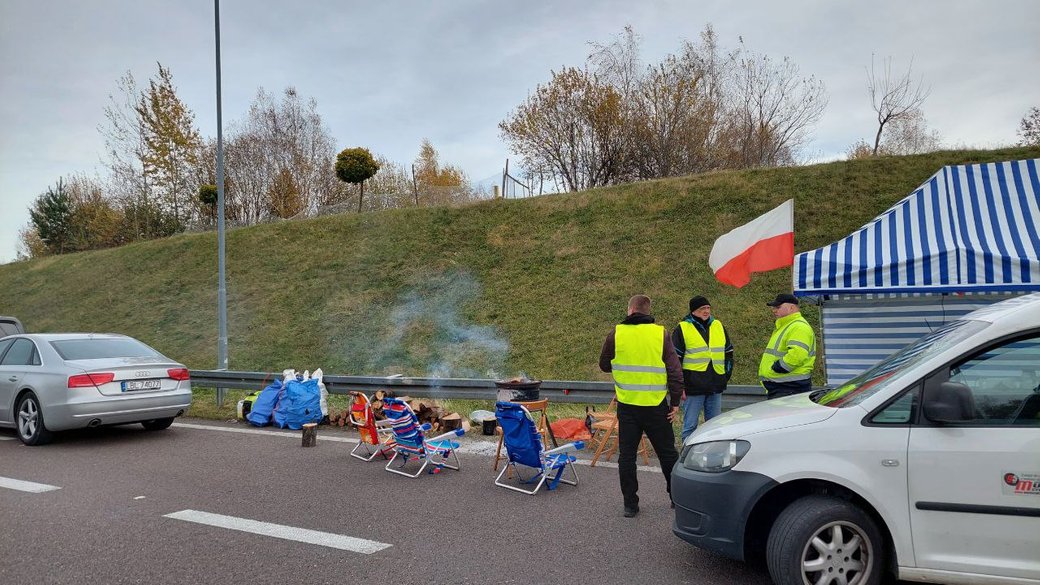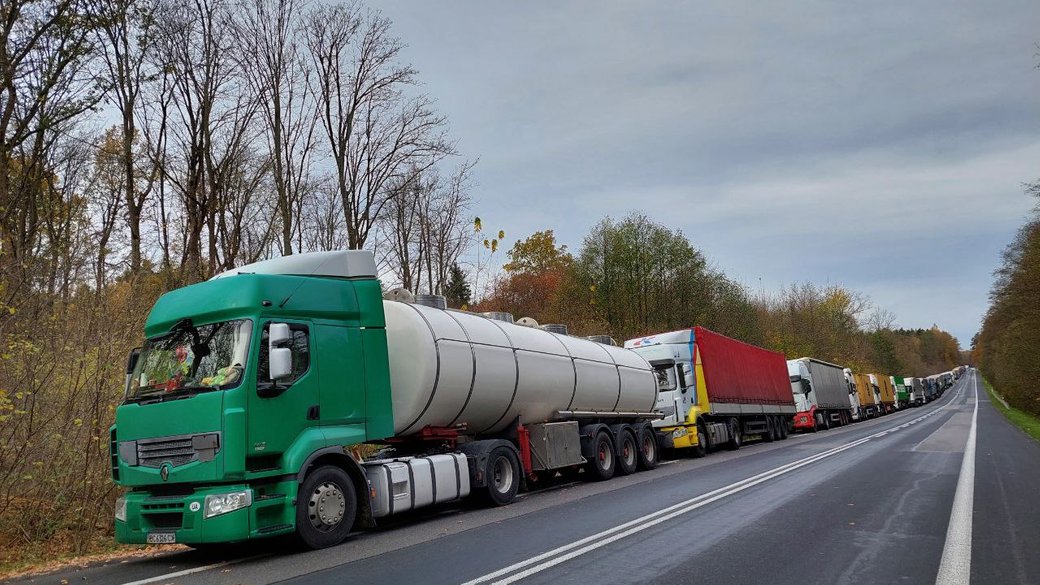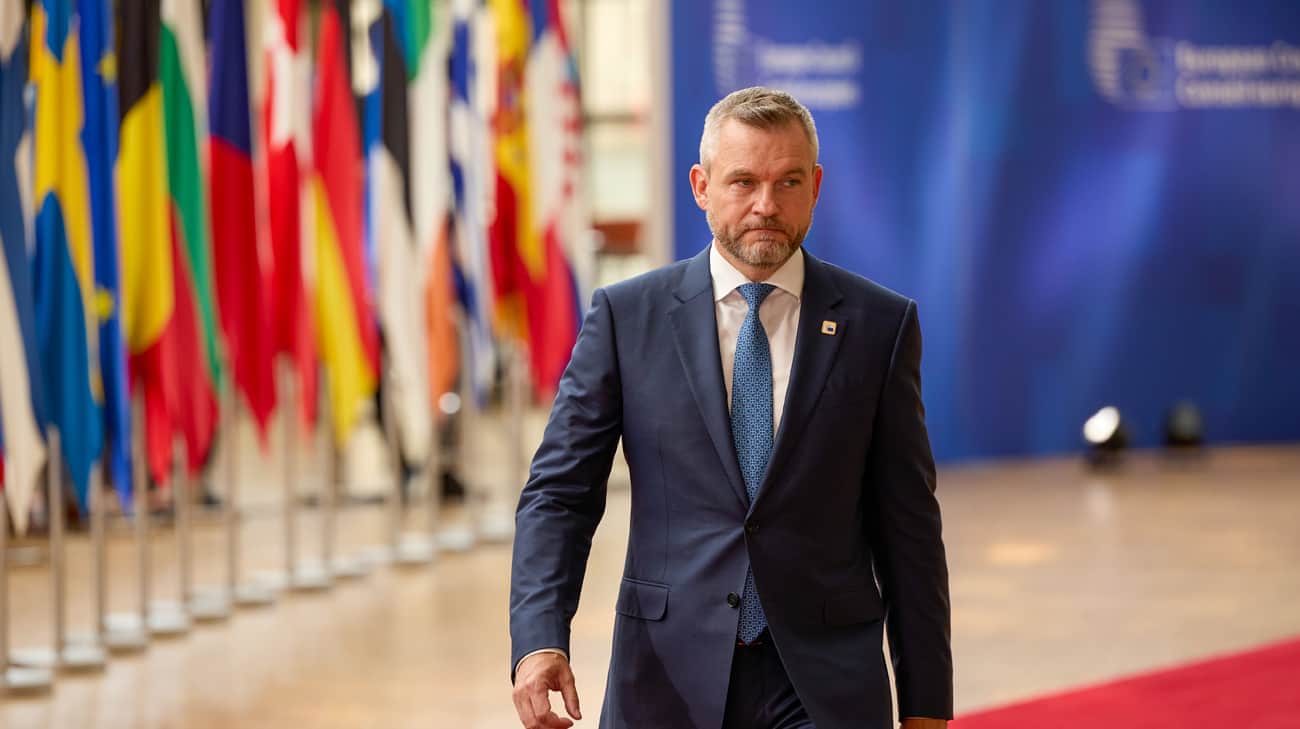Polish truckers reject Ukraine’s compromise offers, continue strike
Ukraine on Monday offered concessions aimed at ending a strike by Polish truckers, but protesters called the steps insufficient and vowed to continue blocking border checkpoints. The post Polish truckers reject Ukraine’s compromise offers, continue strike appeared first on Euromaidan Press.

Talks between Ukraine and Poland held Monday at the countries’ border failed to resolve issues caused by a strike of Polish truck drivers that has severely slowed cargo transports, Ukraine’s Deputy Infrastructure Minister Sergiy Derkach said on Facebook.
The “long, difficult and emotional” talks included protesters, local Polish officials, representatives of transportation ministries and border agencies, and Ukrainian haulers, Derkach said. According to Derkach, the protesters’ main demand — restoring a permit system for cargo transports between Ukraine and Poland — is unrealistic because the permit system was abolished by a Ukraine-EU transport deal in place until June 2024.
“When we asked what the problem is and why they want the permits back, they said they feel an imbalance,” Derkach said. Before Russia’s full invasion began, the ratio of Ukrainian to Polish haulers was 60-40, but now Ukrainians account for 90-95% of traffic. But the Polish drivers said they do not want to travel to Kharkiv, Zaporizhzhia, and other dangerous areas, Derkach said.
Derkach said Ukraine proposed compromise steps like faster border crossings for long-haul trucks and separate lanes for empty vehicles at border checkpoints.
“We hope these talks will allow the Polish carriers to discuss what compromise could be reached among themselves. The issue is not the permits, because that is unfeasible, but of course they still keep this matter at the main level,” Derkach said.
Further three-way talks, including the European Commission, are expected soon.
Polish truck drivers began striking at the Polish-Ukrainian border on 6 November, demanding Ukraine’s transport visa-free regime be canceled. Ukraine has reported major queues for cargo vehicles at three key border checkpoints. Before the strike began, Ukraine’s ambassador said most of the protesters’ demands were unrealistic.

Fringe groups behind the strike
The blockade of key border crossings between Poland and Ukraine, which started on 6 November when Polish truck drivers physically blocked three of the four largest road border crossings, is organized by fringe far-right groups, according to a report by Pavlo Kravchuk published in European Pravda.
It has damaged economic relations and strained ties between the two countries that are crucial supporters of Ukraine in its ongoing war against Russia’s invasion. The demands are unclear and shifting, Kravchuk writes.
Observers say this blockade appears to be driven by the interests of the small organizing committee rather than the wider Polish transport industry.
“This strike does not have the support of either most carriers or the Polish authorities,” Kravchuk wrote. The newly formed Committee for the Protection of Carriers and Employers in the Transport Sector, which includes owners of some firms involved in previous protests, has taken a leading role.
Another key organizer is Rafal Mekler, head of the Lublin chapter of Confederation, a far-right Polish political party with anti-Ukrainian rhetoric and ties to Russia. “This is currently the only parliamentary party in Poland that has publicly supported this action,” the report noted.
While the blockade was underway, neither the Polish Ministry of Infrastructure nor major industry groups endorsed the protesters’ demands and methods, suggesting the actions represent a fringe of the sector.
Despite claims they would allow humanitarian and military cargo, little to none was getting through as of 9 November, Ukraine’s Deputy Infrastructure Minister Serhii Derkach said. “We do not see this,” he stated regarding the promised humanitarian exemptions.
Beyond economic harms, Kravchuk concluded the greatest damage was to Poland’s reputation and relations with Ukraine. “For the fifth time during the war, the vital border has been blocked by supposedly friendly actions,” he wrote. “The instrument of blocking the border simply cannot exist during the war.”
With supplies disrupted and relations under strain, urgent steps may be required to prevent future provocations. But for now, a vocal minority has taken hostage the security and economies of two key partners supporting Ukraine’s defense against Russian aggression.

According to the Polish Ministry of Infrastructure, the blockers have six demands:
- return of permits for Ukrainian carriers, abolished under the EU-Ukraine “transport visa-free regime”;
- Toughening the requirements for transportation under ECMT (European Conference of Ministers of Transport);
- prohibition of registration in Poland of companies with capital from outside the EU;
- access to the Ukrainian “Shlyakh” system, a Ukrainian service to allow male drivers of military age to cross the border if they are transporting humanitarian aid or medical supplies;
- separate queues for cars from the EU in the “eCherha” system, Ukraine’s online booking system for international freight carriers to book a place in the border crossing queue;
- separate queues for empty cars.
The post Polish truckers reject Ukraine’s compromise offers, continue strike appeared first on Euromaidan Press.



